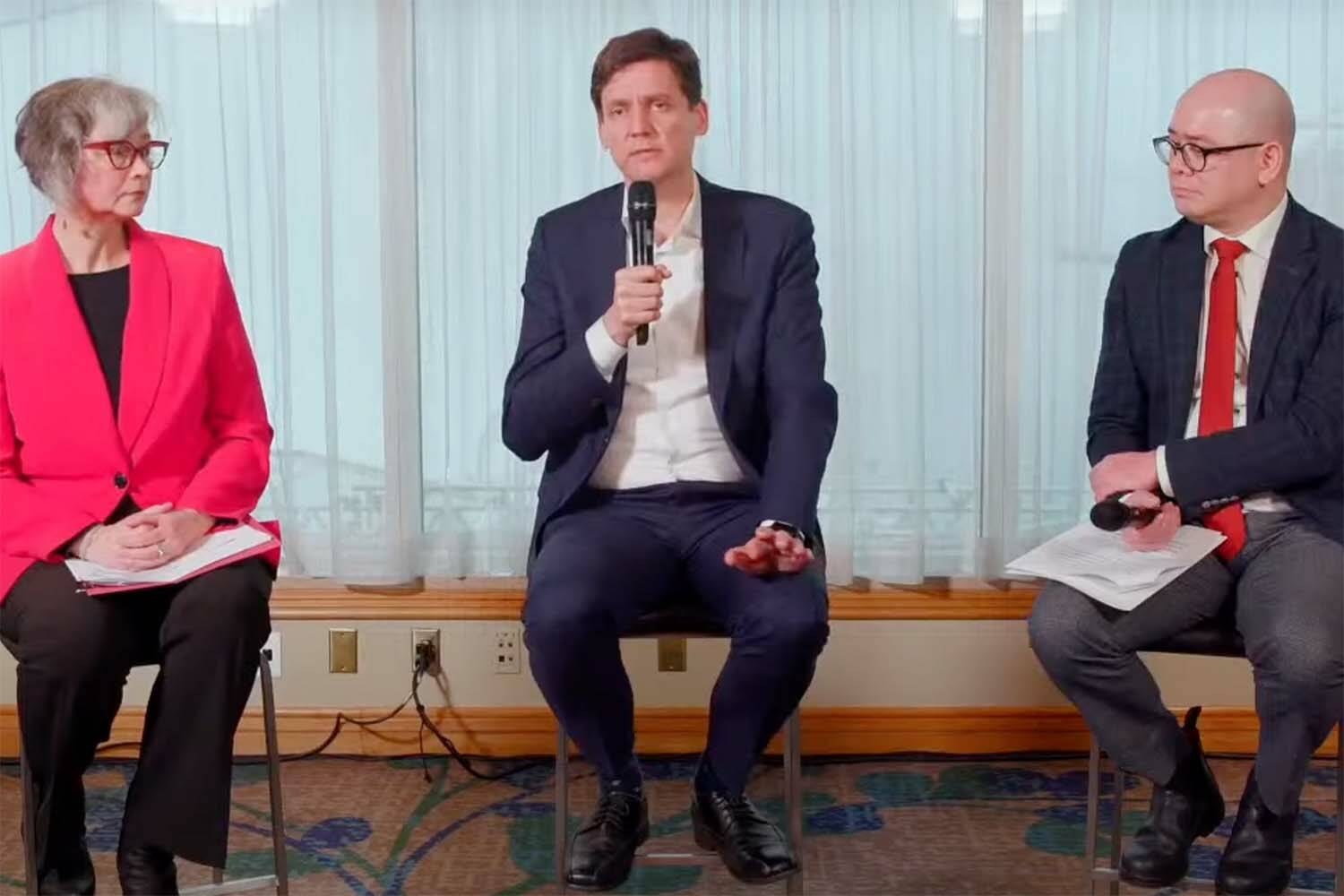As Oregon plans to reverse elements of its drug decriminalization law, British Columbia won’t follow for now, Premier David Eby said.
“We’ll watch what Oregon is doing with interest, just like we watch what Alberta is doing with interest and Washington State and California and other jurisdictions that are struggling with this, “Eby said Thursday (Jan. 25).
“If they show significant progress, of course, we would look at similar approaches. I do, having witnessed it first-hand, struggle with the idea that police, criminal courts and jail are ways to bring people (who are struggling with addiction) into the system.”
He made these comments when asked about a proposed bill that would change aspects of Measure 110 during an unrelated announcement .
Approved by voters in 2020, Measure 110 decriminalized “personal use” amounts of illicit drugs. Possession of under a gram of heroin, for example, is only subject to a ticket and a maximum fine of $100, which individuals can get dismissed if they call a they 24-hour hotline to complete an addiction screening within 45 days. Individuals who do not undergo screening are not penalized for failure to pay the fine.
But the law has faced backlash with critics blaming it for spiking crime and overdose deaths. The proposed Oregon bill would make “personal use” possession a misdemeanor punishable by up to 30 days in jail or a $ 1,250 fine. Police would refer those arrested for small amounts to peer support specialists for assessment or intervention. If they show up to the meeting, they would not be charged. If they do not appear, the offense could be referred to prosecutors.
RELATED: 83 new recovery beds to open in B.C.; 97 private beds now publicly funded
“It doesn’t mean that that is not going to potentially show some success, but intuitively, I believe that open doors, availability of health care, appropriate housing are probably going to show more promise,” Eby added. “But again, we watch carefully what other jurisdictions are going.”
B.C.’s is currently approaching the one-year-anniversary of trial to be exempt from illicit drug laws in Canada. The trial — which exempts possession of up to 2.5 grams of certain illegal drugs until Jan. 30, 2026 from criminal penalties — started on Jan. 31. last year.
Both Eby and Mental Health and Addictions Minister Jennifer Whiteside have broadly confirmed their commitment to the trial, but also faced on-going questions. BC United, which had broadly supported the idea of decriminalization in the past, has called for a new approach emphasizing treatment and recovery.
Out-going chief coroner Lisa Lapointe, meanwhile, has accused government of being unprepared, noting that resources ear-marked for treatment and recovery are insufficient given the scale of the problem, citing estimates that 225,000 British Columbians are using unregulated drugs with about 100,000 diagnosed with an opioid use disorder.
“Given the unpredictability of unregulated drugs, each of these 225,000 individuals is at risk of death,” Lapointe said Wednesday (Jan. 24).
RELATED: 2023 was the worst year for fatal toxic drug poisonings in B.C. history
According to figures from the BC Coroners Service, at least 13,794 people have died of unregulated drugs since the declaration of the current public health emergency in April 2016. In 2o23 B.C. set a new historic record with at least 2,511 deaths linked to unregulated drugs.
If Eby signaled skepticism about Oregon’s pending reversal, he reiterated his government’s rejection of Lapointe’s call for a class exemption to the Controlled Drugs and Substance Act, thereby allowing access to opioids and stimulants beyond the existing medically supervised safe supply system.
“We disagree on a fundamental recommendation,” Eby said. “I believe that if we are talking about treatment of a medical health issue, that there needs to be a nurse practitioner, or a nurse or a doctor, who is supporting that person, if we are talking about prescribing medication to them,” he said.
“I do not believe that the distribution of incredibly toxic opioid drugs without the supervision of a medical professional in British Columbia is the way forward and the way out of the toxic drug crisis. Like the chief coroner though, my goal, everyone’s goal is to drive down the risk of death. It’s hard to think of a person, especially a young person in British Columbia, who is not at risk right now.”
Eby instead said that government is continuing to work toward an integrated, high-quality system that matches individuals with the treatment that is appropriate for them and their cultural background without cost and time being barriers.
“We are not there yet, but we are going to continue that important work,” he said.
– with files from Associated Press
@wolfgangdepner
wolfgang.depner@blackpress.ca
Like us on Facebook and follow us on Twitter.

